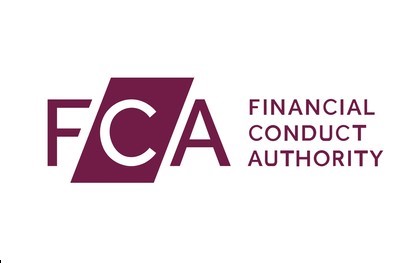Legislative change is needed to extend internet companies' duties in the Online Safety Bill to include paid-for advertising, according to the Financial Conduct Authority’s (FCA) latest Perimeter Report.
In its report, the regulator also called for the bill to designate content relating to fraud offences as ‘priority’ illegal content, and therefore require monitoring and preventative action by platforms.
In addition to this, the FCA reiterated its call for amendments to the Financial Promotions Order, stating that current exemptions mean more ordinary investors are at risk of receiving financial promotions, including for high-risk products, that do not have to comply with the FCA's rules.
The report will form the basis of a formal discussion between FCA chief executive, Nikhil Rathi, and the Economic Secretary to the Treasury, John Glen, before the end of the year.
Rathi, commented: “The FCA is committed to being more innovative, assertive and adaptive.
"That means being more proactive at the limits of our regulation, working with partners and other agencies where we don’t have powers and setting out where we believe more powers are necessary.
“We see real risks to consumers from outside our remit from both online advertising and from those using exemptions to sell products to ordinary customers. Change is needed and we will continue to push for powers where we need them.”
The comments echo testimony from FCA executive director of enforcement and market oversight, Mark Steward, given to the Online Safety Bill Committee earlier this week, where he warned that tackling online scams currently can be “a bit like whack-a-mole”.
He stated: “It is apparent that what lies behind this phenomenon is well organised and industrialised and has created a means of getting the attention of online consumers at volume in a very cheap and efficient way.
“The pursuit of the perpetrators, which often leads us into places overseas, is not the answer. The answer is increased prevention to stop it systemically happening.
“We are very strong supporters of the bill and strong supporters of an extension to paid-for advertising, because the problem is most manifest in the paid-for space, so it does not make sense for the bill not to deal with the very heart of the problem, which is the paid-for advertising space."
Steward stated that the FCA is also a “very strong" supporter of an approach that would obligate social media firms to create systems and controls, emphasising how “valuable” regulated systems can be in preventing harm.
“We think that is an area where prevention is much more preferable than cure,” he continued. “The cure, unfortunately, is very difficult, expensive and frustrating, because it leads to perpetrators who are out of our reach overseas.”
The FCA has previously warned of limits in its power to combat online scams, while the Work and Pensions Committee chair, Stephen Timms, has also argued that regulators remain "powerless" against paid advert scams.
Calls for the inclusion of paid-for advertising in the bill have been growing since the government confirmed that it was rejecting the WPC's recommendation to include scams through paid-for advertising.
Indeed, further arguments for the an extended Online Safety Bill were heard from Competition and Markets Authority executive director for enforcement, Michael Grenfell, who also testified at the recent Online Safety Bill Committee hearing.
“What we would like to see, either in this legislation or in a revision to the unfair trading regulations, or elsewhere, is that it be made clear beyond doubt that online platforms have a duty to monitor, and where necessary remove, content that would normally be illegal under consumer protection law," Grenfell said.
Also speaking as a witness, Advertising Standards Authority chief executive, Guy Parker, warned that the scale of online fraud can make it "extremely challenging for regulators", suggesting that "clearly more needs to be done to tackle online fraud".
The Online Safety Bill Committee has also heard calls for action from MoneySavingExpert.com chair and Mental Health and Money Policy Institute founder, Martin Lewis.
"There needs to be a duty of care on social media and other online advertisers to ensure that these scam adverts do not run and that they take responsibility when they do. That is why we are calling for scam adverts to be put in the Online Safety Bill," Lewis argued.
Latest News
-
OBR analysis reveals potential impact of salary sacrifice changes
-
Strong funding levels continue as endgame landscape reshaped by innovation
-
Harwich Haven Authority Pension Fund finalises £45m buy-in with Royal London
-
GAD publishes LGPS gender pension gap reporting guidance
-
DB scheme funding levels continue to improve heading into 2026
-
News in brief - 6 February 2026
Private markets – a growing presence within UK DC
Laura Blows discusses the role of private market investment within DC schemes with Aviva Director of Investments, Maiyuresh Rajah
The DB pension landscape
Pensions Age speaks to BlackRock managing director and head of its DB relationship management team, Andrew Reid, about the DB pensions landscape
Podcast: From pension pot to flexible income for life

Podcast: Who matters most in pensions?

In the latest Pensions Age podcast, Francesca Fabrizi speaks to Capita Pension Solutions global practice leader & chief revenue officer, Stuart Heatley, about who matters most in pensions and how to best meet their needs
© 2019 Perspective Publishing Privacy & Cookies










Recent Stories